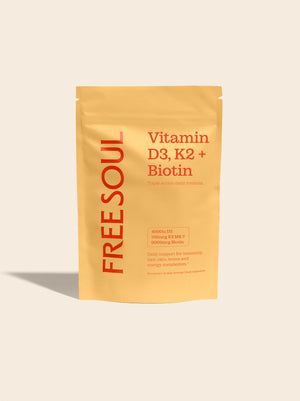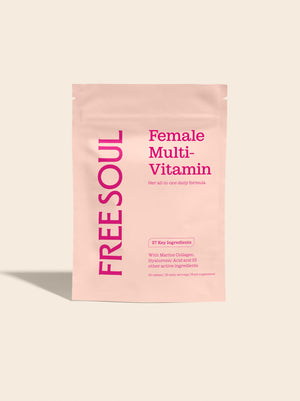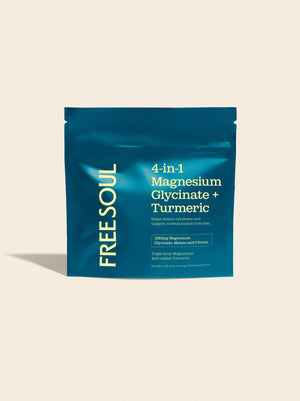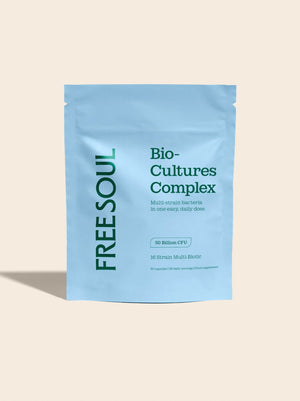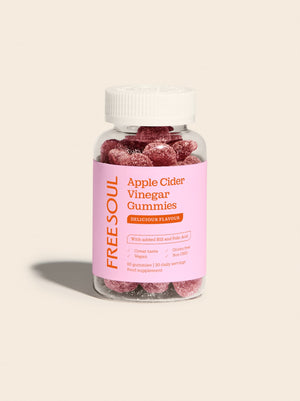There is a common misconception that protein = bulk, as its only purpose is to grow muscle. But guess what, ladies? Protein isn’t just for the men and the gym-goers, it’s an essential part of our diets that many women are missing out on.
Proteins are often called the building blocks of life. They are large, complex molecules made up of smaller units known as amino acids. Our bodies require these amino acids to repair cells, make new ones, and perform essential bodily functions. Think of protein as the vital ingredient for your body’s structure, similar to how bricks are essential for building a house.
We’re going to cover the benefits of protein for women, its role in the body, and how much you should be getting in your diet.
The role of protein in the body
Proteins play a multitude of roles in your body:
- Cell repair and growth: Essential for repairing tissue and muscle growth.
- Hormone production: Proteins are involved in creating hormones that regulate bodily functions.
- Enzyme creation: Many enzymes are proteins that speed up chemical reactions in the body.
- Transport and storage of molecules: Proteins transport substances like oxygen throughout the body.
Why do women need protein?
Protein is often associated with muscle gain and is mistakenly thought to be a nutrient primarily for men or bodybuilders. The truth is, the benefits of protein are important for everyone, including women, for many reasons that go beyond muscle building.
- Muscle health and toning: While protein does aid in muscle growth, it doesn’t necessarily lead to bulkiness. For women, adequate protein intake helps maintain lean muscle mass, which is essential for a toned appearance and overall strength. As women age, they naturally lose muscle mass, making protein intake even more critical to counteract this effect.
- Weight management: Protein-rich foods can make you feel fuller for longer, aiding in weight control.
- Bone health: Protein plays a vital role in maintaining bone density. This is particularly important for women who are at a higher risk of osteoporosis and bone fractures as they age.
- Hormonal balance: Proteins are fundamental in the synthesis of hormones that regulate various bodily functions. Hormonal imbalances can lead to a host of issues, including menstrual irregularities, weight gain, and mood swings. Adequate protein intake ensures that your body has the necessary building blocks to produce these vital hormones.
- Hair, skin, and nail health: Keratin, collagen, and elastin, key proteins, are essential for healthy hair, skin, and nails. A protein deficiency can lead to thinning hair, brittle nails, and lackluster skin.
- Overall health and immune function: Proteins are essential components of antibodies and immune system cells. Without adequate protein, the body may struggle to fight off infections and heal from injuries.
- Pregnancy and breastfeeding: For pregnant or breastfeeding women, protein is crucial for the healthy growth and development of the baby. It supports various stages of fetal development.
Food sources of protein
Protein is found in a variety of foods.
- Animal-based proteins: Chicken, beef, fish, eggs, and dairy products.
- Plant-based proteins: Beans, lentils, tofu, nuts, and seeds.
Plant-based vs animal-based protein
Complete vs incomplete proteins:
- Animal-based proteins: These are typically 'complete' proteins, meaning they contain all nine essential amino acids that our bodies cannot produce on their own.
- Plant-based proteins: Most plant-based proteins are 'incomplete', lacking one or more of the essential amino acids. However, some plant-based sources like quinoa and soya are complete proteins.
Protein density:
- Animal proteins: Generally, animal proteins are more protein-dense. This means you can consume a smaller quantity to achieve the same protein intake. For example, a small 3-ounce portion of chicken breast provides about 26 grams of protein.
- Plant proteins: Plant-based sources often contain less protein per serving compared to animal sources. For example, to get the same 26 grams of protein found in a chicken breast, you would need to consume about 3.5 cups of cooked quinoa.
Quantity and quality:
- To meet protein requirements solely from plant-based sources, you typically need to consume larger quantities of food. This is because plant-based proteins are often less concentrated in protein and can be combined with other macronutrients like carbohydrates and fibre.
- It's also important to consider protein quality. Animal proteins provide high-quality protein with high bioavailability, meaning the body can easily use the protein. Plant proteins can have lower bioavailability, but this can be offset by consuming a variety of plant-based protein sources throughout the day.
Combining plant proteins:
- Since many plant proteins are incomplete, it's beneficial to consume a variety of protein sources to ensure you're getting all the essential amino acids. This practice is known as protein complementation. For example, rice and beans eaten together provide all the essential amino acids.
Practical consideration:
- When relying on plant-based proteins, it's crucial to plan your meals thoughtfully. While it might seem like you need to consume large quantities of a single food like quinoa to meet your protein needs, in practice, you'll likely be combining multiple protein sources (like legumes, nuts, seeds, and whole grains) throughout the day.
How Much Protein Do You Need?
The amount of protein needed varies based on age, activity level, muscle mass, and overall health. A general guideline is 0.75 grams of protein per kilogram of body weight. For a 60 kg woman, this would be about 45 grams of protein per day. However, needs can increase for active individuals or during pregnancy.
Calculating your minimum daily protein intake
To calculate your daily protein needs:
- Find Your Weight in Kilograms: If you know your weight in pounds, divide it by 2.2 to convert to kilograms.
- Multiply Your Weight by the Protein Requirement: For example, 60 kg x 0.75 g/kg = 45 grams.
Tips for incorporating protein into your diet
- Start Your Day with Protein: Include eggs, Greek yogurt, or Free Soul Vegan Protein Blend in your breakfast.
- Snack Smartly: Opt for hard-boiled eggs, nuts, seeds, or cheese.
- Balance Your Meals: Ensure each meal has a good protein source.
Protein is a powerhouse nutrient that plays a crucial role in women’s health. By understanding its importance and incorporating various protein sources into your diet, you can support your body’s needs and achieve your wellness goals.
Protein needs by life stage
Here’s why women need protein at different stages of their lives, as intake needs are affected by age, lifestyle, and hormones.







